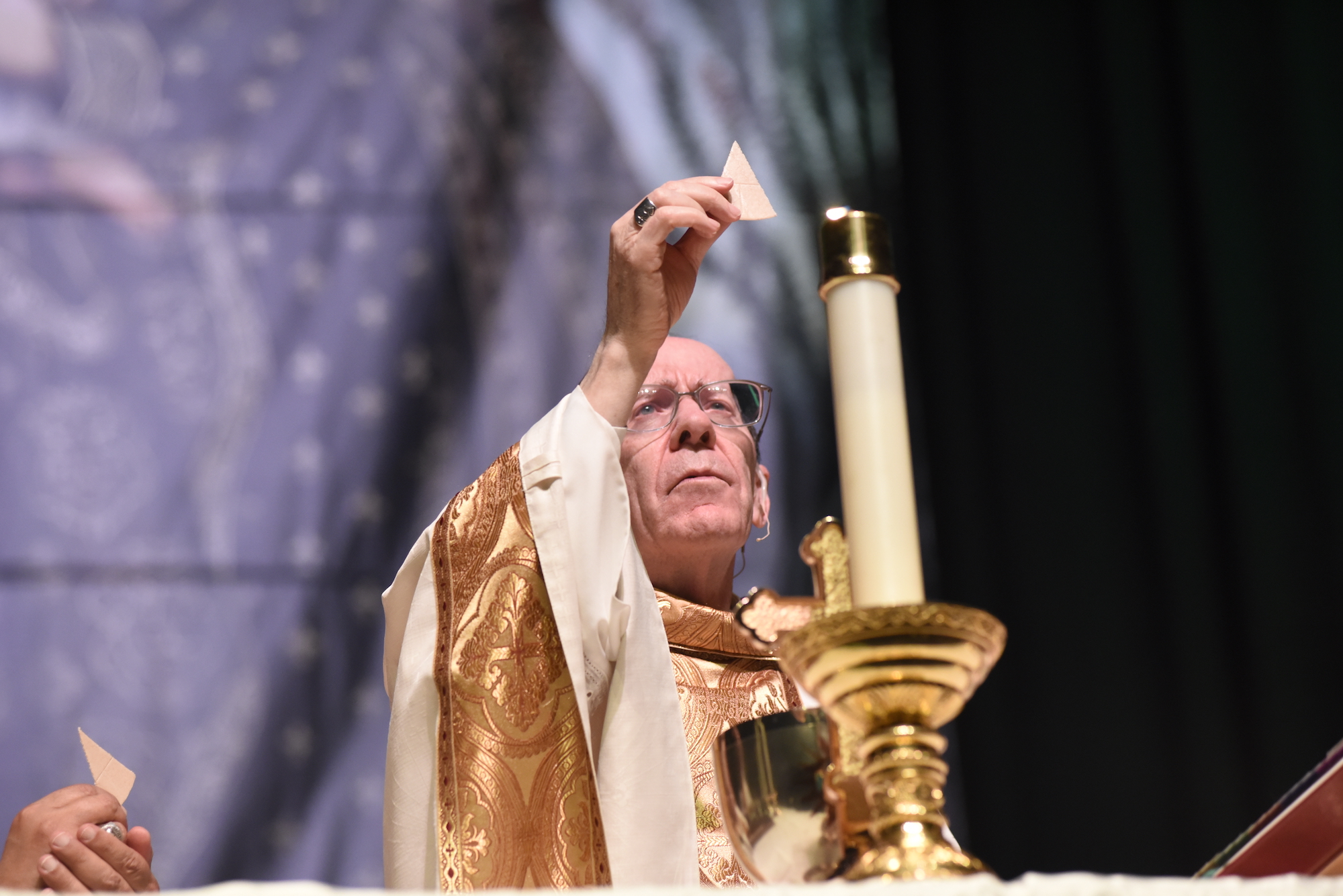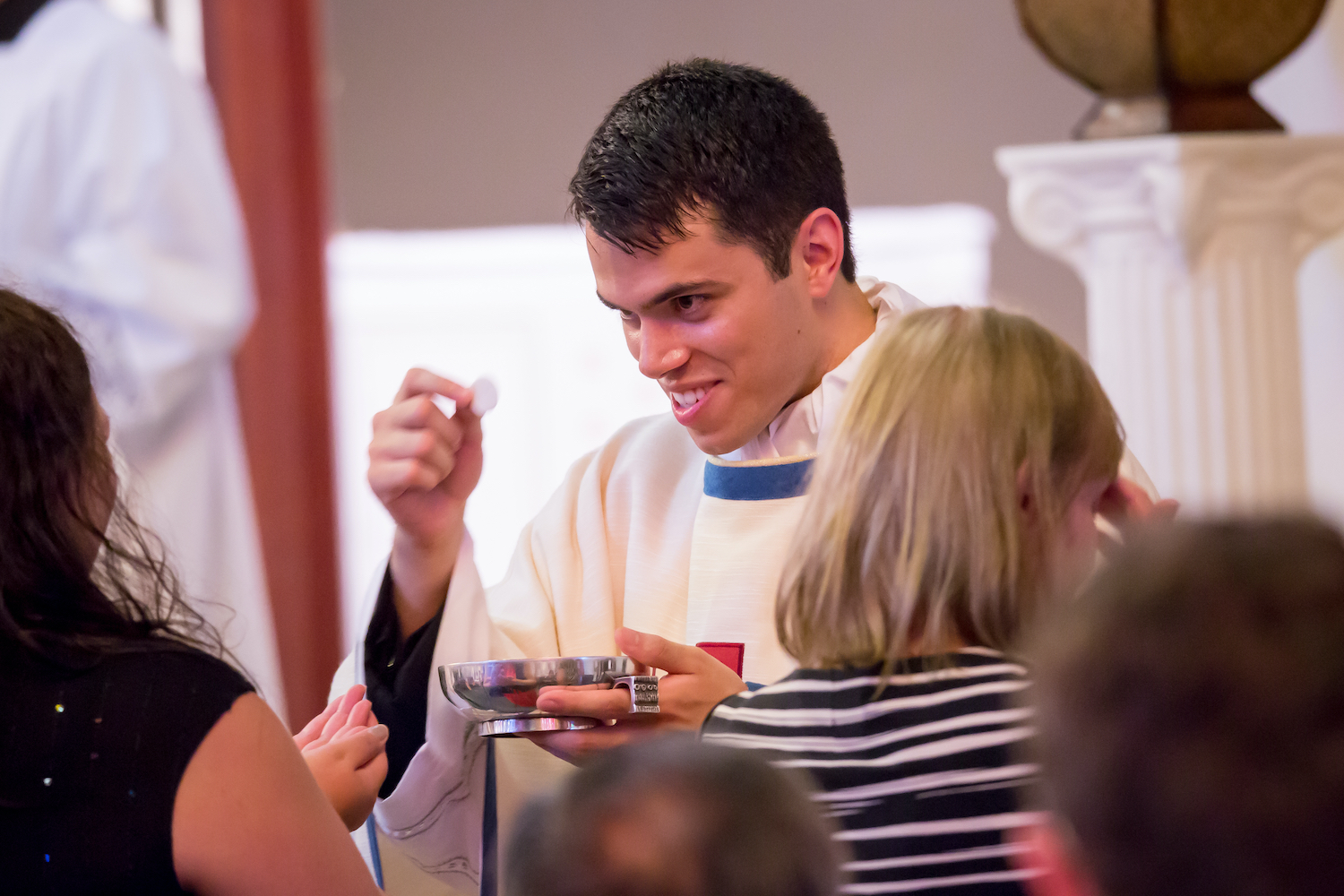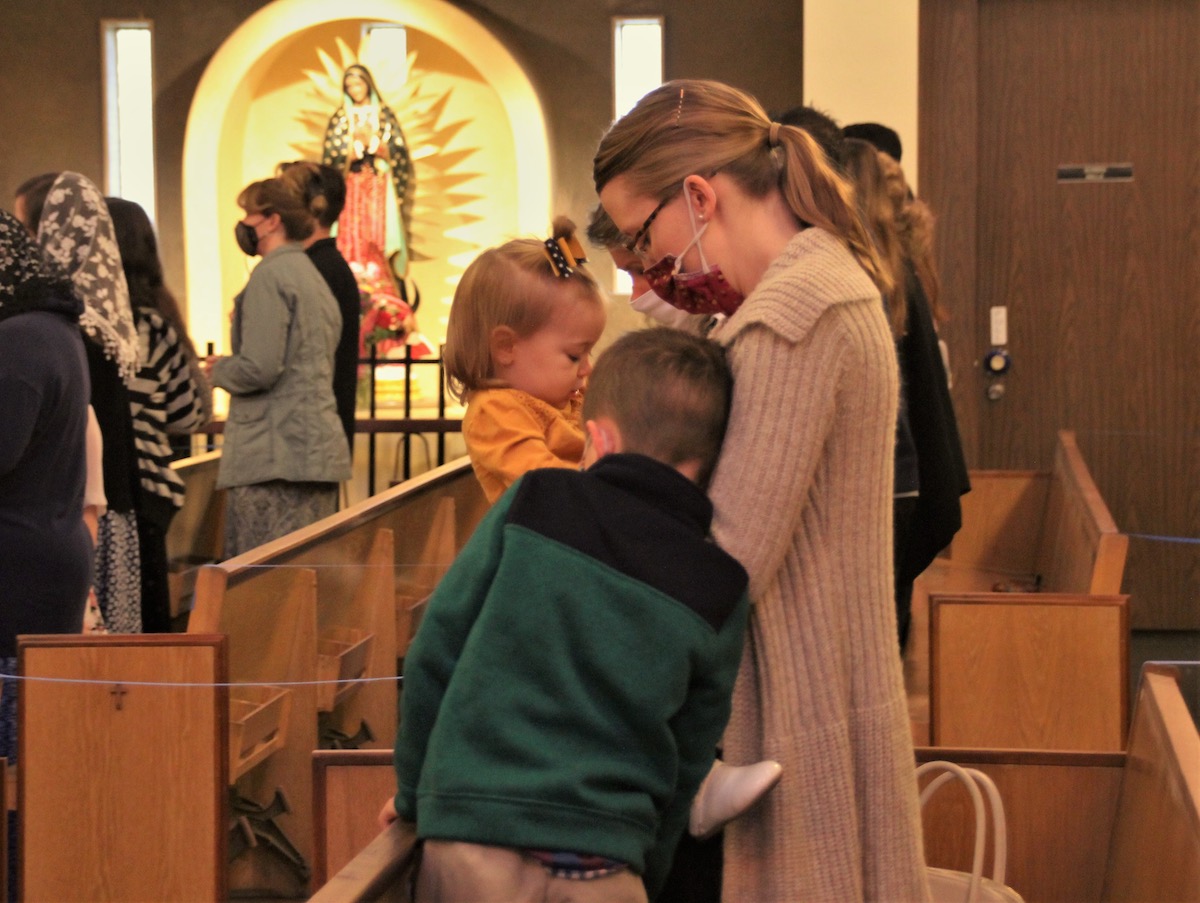
One year into the COVID-19 pandemic, Bishop Thomas J. Olmsted of the Diocese of Phoenix has written a pastoral letter to the faithful aimed at bolstering faith in the Real Presence of Christ in the Eucharist.
The letter, “O Sacred Feast,” was released Jan. 28, the memorial of St. Thomas Aquinas, whose writings have shaped hundreds of years of theology and whose hymns of praise for the Eucharist helped inspire the letter’s title.
The missive was issued as a precursor to an Apostolic Exhortation on the Eucharist which will be published on the Feast of the Lord’s Supper, Holy Thursday, which this year falls on April 1.
“Many have shared with me the heavy grief they have carried during the COVID-19 pandemic at the loss of regular accessibility of the great Sacrament of the Eucharist,” the letter states. “As a spiritual father and spouse of the Church, it grieves me to see the flock entrusted to my care suffer separation from the Lord whom I have dedicated my life to serve and to make present among His people.”
Public Masses were suspended last spring as the COVID-19 virus spread across the diocese and the globe, threatening the lives of millions. Although priests continued to celebrate Mass privately, the faithful were unable to be present except virtually, even during the Triduum. Parishes quickly adapted, livestreaming their Masses. Priests heard confessions outdoors or in drive-up fashion. Currently, public Masses have been reinstated but, due to grave health concerns, some have stayed away.
The sorrow at being parted from their parishioners — some of them for almost a year — has hit priests hard.

Fr. Fernando Camou, associate director of the Office of Vocations and vice-rector of Nazareth House Seminary, helps out at parishes all over the diocese on Sundays since he’s not assigned to a particular parish. He’s seen the hurt.
“There’s a grief of the loss of that connection that you want to have with your flock, the people that you’re serving,” Fr. Camou said. “You want them to know the Lord that you know and fall in love in the same way that you are.”
The pastoral letter about the Eucharist from Bishop Olmsted, Fr. Camou said, is intended to provide a word of encouragement and is a call to greater faith, even if people are unable to receive the Eucharist in person due to serious reasons.
“My sense is that what he sees is that we need to keep our eyes on the Lord,” Fr. Camou said. “Our bishop is saying, ‘Guys, the Eucharist is so central … If we keep our eyes on that, this imploring the grace of an increase of faith in the Eucharist, then everything else is going to line up.”
Then there’s a fear among pastors that some parishioners may never return.
Bishop Olmsted begins his letter citing the life of Blessed Charles de Foucauld, whose deep love for the Eucharist initially led him to life as a Trappist monk. Blessed Charles eventually left the monastery though and “lived the last twenty-some years of his life essentially homeless without companions, dedicated to loving the Lord in the Eucharist and serving the needy with warm hospitality,” Bishop Olmsted writes. Blessed Charles was martyred for the faith in 1916 in North Africa.
My dear brothers and sisters, faith in the Eucharist is always fruitful when it is cherished and lived. In the hope of our rediscovery of the beauty and truth of the Eucharist, I will promulgate my next Apostolic Exhoration, #VeneremurCernui, on Holy Thursday.
— Bishop Olmsted (@BishopOlmsted) January 29, 2021
The bishop also points to 49 early Christians who were martyred for the faith in the fourth century during the reign of Diocletian. When asked why they continued to illegally celebrate Mass, they said, “Without the Sunday Eucharist, we cannot live.”
It is that kind of love for Jesus in the Bread of Life which Bishop Olmsted seeks to stir up with the letter and forthcoming Apostolic Exhortation.
“The bishop is saying, ‘We need to focus on the Lord.’ What we need is eucharistic faith, a radical, bold awareness,” Fr. Camou said.
Fr. John Parks, pastor of St. Theresa Parish, called the letter a “clarion call to really preach and live the Eucharist” and said the number one reason people should come back to church is the Eucharist.
“It’s because of Jesus’ real and substantial Presence. It’s waiting for you in the Eucharist,” Fr. Parks said. “This Lent we’re going to challenge the people at St. Theresa’s to spend more time with the Lord in the Eucharist in Adoration. Outside of receiving Jesus in the Eucharist, the best thing we can do is adore His Presence in Adoration.”
Fr. Parks spoke to the concerns of many who say that for now, they are staying away from church due to health risks.
“Every person has to take the appropriate risk for them concerning COVID. Obviously, for every person, leaving the house is a risk, but if we’re leaving the house to eat at a restaurant, if we’re willing to take that risk for natural food, why wouldn’t we take the risk for supernatural food, for the Bread of Life?
“We’re willing to take risks for all sorts of things, but if there’s something that’s absolutely worth taking a risk for, it’s the Eucharist.”
Lucy Monell is 63 and attends daily Mass at All Saints Parish in Mesa. She says she lost her husband last October and was “devastated.”
Being able to receive the Eucharist, she said, gives her “strength, forgiveness, mercy, compassion and help from Jesus Christ and the Blessed Mother.”
Even though people her age are more at risk from the virus, she says she’s not afraid because those who attend Mass are spread out, with every other pew empty. “Everyone wears a mask and you wash your hands or use gel afterward. For me, there is no danger to go to church — I want to inspire others to go.
“Receiving the Eucharist is that light we need and the more we grow, our faith goes higher.”
St. Thomas the Apostle parishioner Bridget Dickinson, a nurse and mother of two young boys, says the months during which public Masses were suspended “felt like a year” to her family. She says she took comfort in the parish’s ability to share a 24-hour live view of the tabernacle on the parish website.
“I remember waking up at midnight and turning on my live view and looking at the Eucharist and going, ‘Lord, you have to get us back in there.’”
That pain of separation from the Lord in the Eucharist is something Bishop Olmsted spoke to in a telephone interview about the pastoral letter.
“There are some who really love the Eucharist and it’s a time of great pain, but it’s a healthy kind of pain,” Bishop Olmsted said.

For others, the pandemic may have contributed to a growing increase in the number of Catholics who do not believe in the Real Presence. The letter and Apostolic Exhortation are meant to address this crisis of faith and re-inspire Catholics to a deeper love of God in the Eucharist.
The way to revitalize a faith grown cold, the bishop said, isn’t through words though. It’s witness.
“I think the primary way is through our own burning love for Jesus in the Eucharist. I think there’s nothing more compelling,” Bishop Olmsted said. He referenced the late Cardinal Nguyen Van Thuan of Vietnam, who spent 13 years in re-education camps, nine of them in solitary confinement.
“His love for Jesus in the Eucharist was so great that the Vietnamese officials finally couldn’t wait to get him out of the country and get him out of the prisons because so many guards kept converting,” Bishop Olmsted said.
It’s that kind of love the pastoral letter seeks to ignite.
“Read the letter, get inspired and let it form your Lent,” Fr. Parks said.






